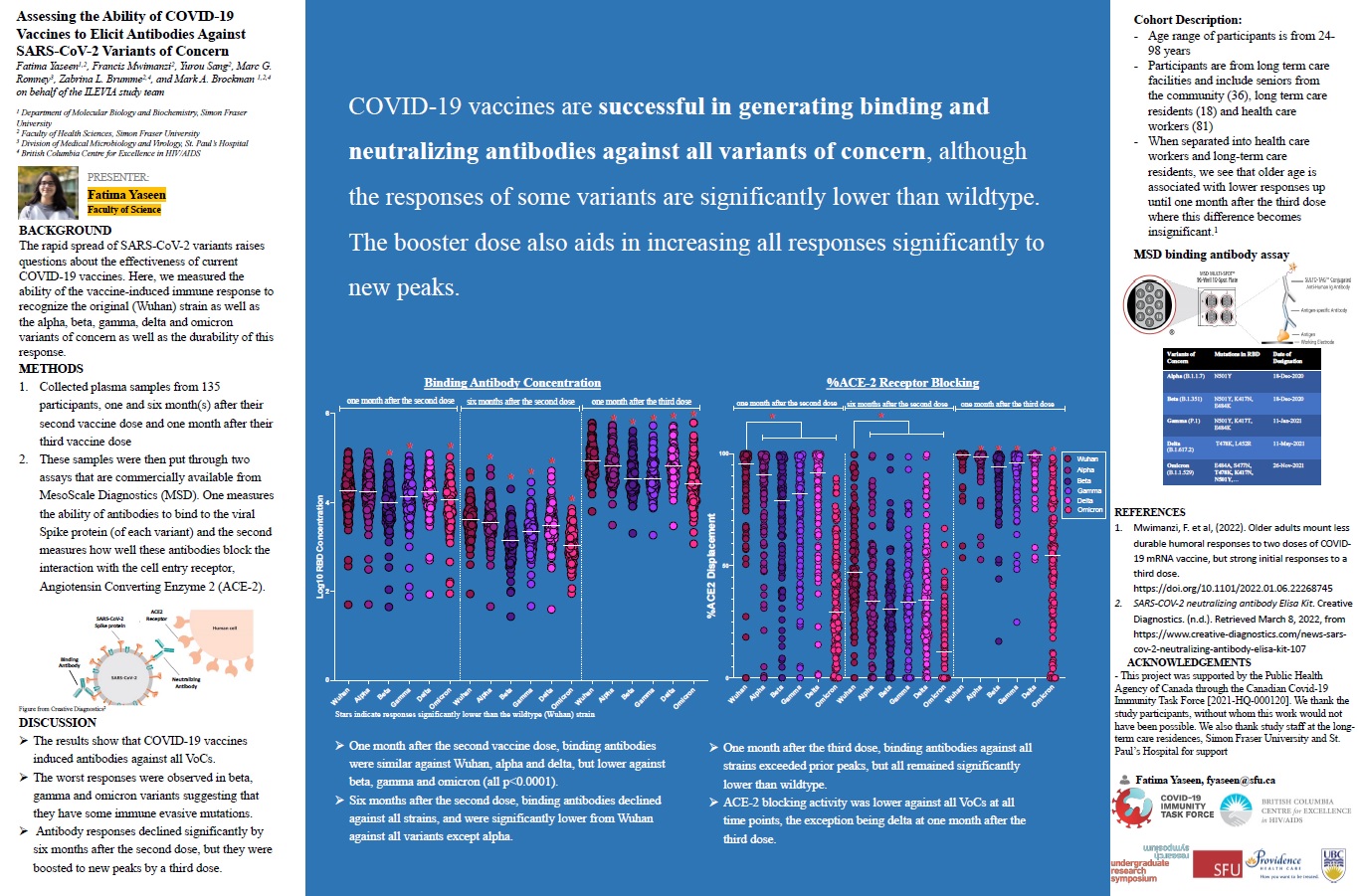Assessing the Ability of COVID-19 mRNA Vaccines to Elicit Antibodies Against SARS-CoV-2 Variants of Concern
Main Article Content
Abstract
The COVID-19 pandemic has been marked by emergence of SARS-CoV-2 variants of concern (VoC), including strains that may evade immune responses. To assess the ability of current vaccines to generate immunity against VoCs, we tested samples from 135 people after two or three vaccine doses using laboratory assays that measure the ability of antibodies to bind to the viral Spike protein and to block its interaction with the cell entry receptor, Angiotensin Converting Enzyme 2 (ACE-2). Both responses were quantified against the ancestral virus strain (Wuhan) as well as alpha, beta, gamma, delta and omicron VoCs. One month after the second vaccine dose, binding antibodies were similar against Wuhan, alpha and delta, but lower against beta, gamma and omicron (all p<0.05). Notably, ACE-2 blocking activity was lower against all VoCs at this time. Six months after the second dose, binding antibodies and ACE-2 blocking activities declined against all strains, and remained significantly lower against all VoC. One month after the third dose, binding antibodies against all strains exceeded prior peaks, but remained lower against wildtype. Similarly, ACE-2 blocking activity exceeded prior peaks, but remained lower against all VoC except delta. In summary, our results show that COVID-19 vaccines induced antibodies against all VoCs, but immune evasion was observed, particularly in the case of beta, gamma and omicron variants. Antibody responses declined significantly by six months after the second dose, but they were boosted to new peaks by a third dose.
Acknowledgments –
This project was supported by the Public Health Agency of Canada through the Canadian Covid-19 Immunity Task Force [2021-HQ-000120]. We thank the study participants, without whom this work would not have been possible. We also thank study staff at the long-term care residences, Simon Fraser University and St. Paul’s Hospital for support. A similar analysis of the Omicron strain is ongoing and will be included in our final presentation.
Faculty Supervisor: Dr. Mark Brockman, Faculty of Health Sciences, Simon Fraser University
Article Details

This work is licensed under a Creative Commons Attribution-NonCommercial-NoDerivatives 4.0 International License.

